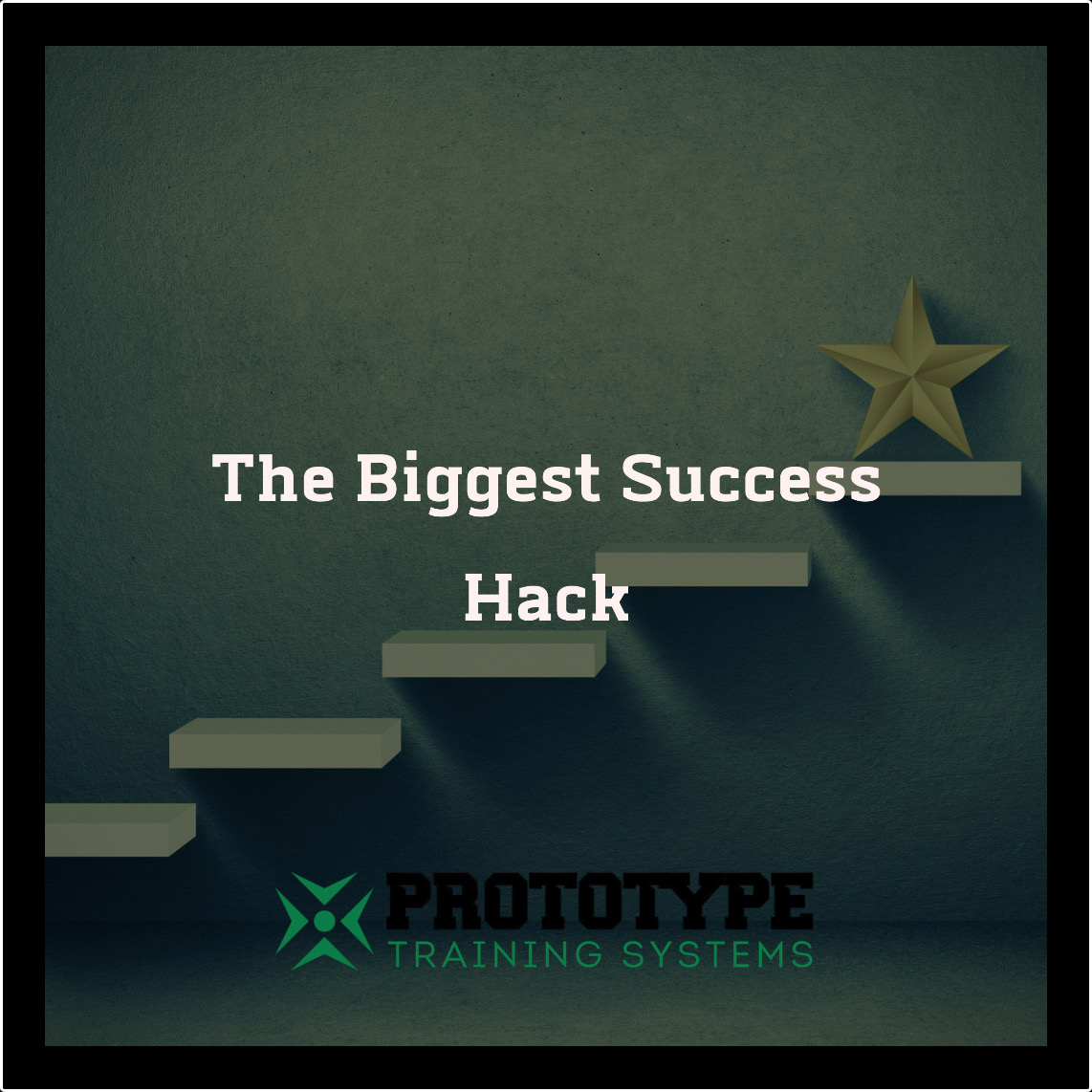The Biggest Success Hack
The Biggest Success Hack
By: Mike Collette (Owner of Prototype Training Systems )

Have you ever heard the saying “luck is when opportunity meets preparation ”?
I hate to say it but success doesn’t happen because of luck! You earn that!
The same applies to the idea that we elevate ourselves to the level of our challenges.
The reality is that we meet the level of our preparation .
There are strategies we can take to be successful, build good habits, and overcome a lack of motivation and they all start with preparation.
If you’ve ever read the book “ Freakanomics ” by economist Steven Levitt and Stephen Dubner, they talk about a technique called “Commitment Devices”.
According to Wikipedia, a Commitment Device “is a way to lock yourself into following a plan of action that you might not want to do but you know is good for you… a technique where someone makes it easier for themselves to avoid acting against one’s better judgment, particularly procrastination .”
Commitment devices have two major features.
- They are voluntarily adopted for use and they tie consequences to follow-through failures.
- Consequences can be immutable (irreversible, such as a monetary consequence) or mutable (allows for the possibility of future reversal of the consequence).
Commitment devices can help set us up for long-term success: using our bodies and brains in the way they’ve evolved to be used.
An example of this might be your kid makes a bet with you so they follow through with completing a task, vs. getting in trouble: “I will pay you $100 if I don’t get my college essay done tomorrow!”.
Building good habits doesn’t mean overcoming bad ones or ramping up your motivation to suddenly change overnight. Those kinds of changes don’t stick. Instead, we need to leverage our natural human tendencies.
A commitment device is a choice you make NOW that will control your actions in the future. The goal is to build habits on these actions.
A more realistic example would be if you make an appointment with your personal trainer, you’re more likely to show up and train. If you join a team, you’ll show up for the games. If you publicly share your goals on Facebook, your reputation is on the line. And if you prepare your meals in advance for the week, you’ll eat them.
Here are two very simple commitment devices you can set up right now:
- Book your personal training appointments or reserve a CrossFit class at Prototype for the week in advance.
Step 1: Sign in to your account
Step 2: Reserve your 1:1 appointments or save your spot in a group.
- Write down what your lunches will be for the week.
To make it easy, either eat the same thing every day OR plan your dinners for the week and carry the leftovers over to the next day’s lunches.
Step 1: Write up your grocery list.
Step 2: Go to the store.
Step 3: Buy the groceries you’ll need for all of your lunches.
Step 4: Set aside one hour for food prep TONIGHT. (THIS IS THE HARDEST PART)
Step 5: Chop up your vegetables, proteins, nuts, and seeds. Put them into separate containers.
Step 6: Make enough for the full week.
You don’t need to get fancy: Most of us eat the same thing most of the time, and that’s just fine. Save your variety for dinner.
Commitment devices remove friction and the burden of choice.
Prepare your commitments in advance, it will set you up for success!
Inspiration provided by Chris Cooper at Catalystgym.com.
The post The Biggest Success Hack appeared first on Prototype Training Systems.
Previous Blogs


Climb to New Heights
Prototype Training Systems is more than a gym - it is a lifestyle. Join us today!


